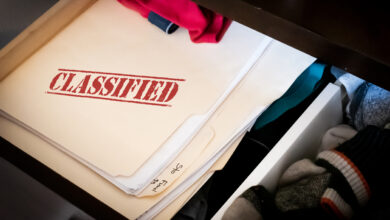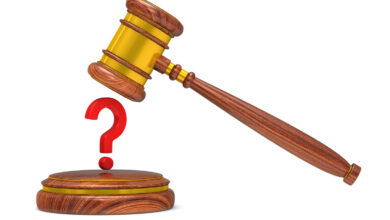Trump’s Art of Negative Branding
It’s worked so far, but he'll have to do more to save his presidency

Crooked Hillary. Fake News. Witch Hunt. Low Energy Jeb. Little Marco. Pocahontas. Open Borders. 13 Angry Democrats.
This isn’t just name calling. It’s negative branding. And it has been an effective tool for Donald Trump.
The names Trump has assigned to his adversaries are epithets, descriptive words or phrases, often pejorative, expressing a characteristic supposedly possessed by the person in question.
Think of the difference between calling somebody an SOB, and calling somebody a “dirty old man.” Calling somebody an SOB is normally dismissed as an emotional expression of disapproval. It neither purports to describe a character trait, nor is it taken to mean anything specific. Calling somebody a dirty old man, by contrast, says something very specific and individualized about the speaker’s perception of the person’s character. It implies that the person in question is lecherous. It says, “stay away.”
If the epithet delivers an “Aha” moment, a reaction by the listener that it carries a ring of truth, and if it is repeated often enough, it can stick.
It can become a brand.
A brand is a name or slogan intended to be associated with the person or thing to which it is applied.
In order to successfully brand a public figure, the Aha moment is key. The epithet has to ring true. It has to align with some previously existing perception. If it doesn’t ring true, or at least confirm a bias, it won’t stick.
Witness, for instance, Trump’s initial attempts to brand Hillary Clinton.
In order to successfully brand an adversary, an Aha moment is key
One of his early attempts was to label Hillary as “unhinged.” If you want to hate Hillary Clinton, feel free. But whatever you hate about her, it is certainly not that she is “unhinged.” She is, in fact, quite hinged. Perhaps excessively so. An opposite label, that Clinton is overly scripted and programmed, would have been much closer to the truth.
So “unhinged” never stuck and, worse, it had a sexist stink to it. Kind of like using the word “hysterical” to describe a woman with whom one happens to disagree.
Trump next attempted to brand Clinton as physically weak and frail, even suggesting that she was concealing a serious medical condition. Using out-of-context footage of an episode in which Clinton was suffering from exhaustion and pneumonia after months of non-stop international travel, and a vastly overblown story about a concussion, the Trump campaign released an ad, entitled “Dangerous.” The narrator of the ad intoned that “Hillary Clinton doesn’t have the fortitude, strength or stamina to lead our world.” Trump himself repeatedly described Hillary as lacking “stamina.”
But that didn’t stick either, especially after Hillary stood up to Trump, and much more, during one of their debates. Even Trump, who rarely concedes anything about an opponent, conceded after the debate that “she does fight hard, and she doesn’t quit, and she doesn’t give up.” This characterization of Clinton as a relentless fighter aligned far better with Clinton’s public image than the idea that she was frail and lacking in strength.
Once again, Trump had missed the target in his attempt to attach a negative brand to Hillary Clinton.
But the next one hit the bullseye.
“Crooked Hillary” resonated with the Republican base, and even made headway with moderate Republicans and Independents. It bookended beautifully with rally chants of “Lock Her Up.”
Epithets don’t have to be literally true to stick
It didn’t matter that there was no factual support that Clinton was actually “crooked” or corrupt. Opportunistic, sure. Overly ambitious, perhaps. Greedy, maybe. But there’s not a shred of evidence that Hillary Clinton ever took a cent from the Clinton foundation or committed any other crime. (And please don’t pipe up with “what about the emails?” What about them? Hillary Clinton used private email to conduct government business, just like every other politician in Washington DC at the time. End of story.)
But epithets don’t have to be literally true to become a brand that sticks. The Aegean Sea is no less blue-green than any other ocean, but Homer’s branding it as the “wine dark sea” has managed to stick for more than two millennia.
So it was with “Crooked Hillary.” While not literally accurate, it was close enough for people who didn’t like the whole idea of a Secretary of State who was associated with a global charitable organization, or thought that her husband was overpaid for speaking engagements, or fell for the email “scandal” hoax, or drank the poison Kool-Aid on Benghazi.
Crooked Hillary stuck, and helped get Trump elected, just like “Little Marco,” “Lyin’ Ted,” and “Low Energy Jeb” had helped him win the nomination. Each of those epithets turned out to be pithy, succinct brands that managed to articulate preexisting perceptions and biases held by a large swath of the public.
Right now, Trump is hard at work on the most important branding campaign of his life, the one that he’s going to need to save his presidency. Each day, it becomes more likely that the Mueller investigation is going to issue a scathing report on Trump’s campaign misconduct and obstruction of justice, if not to outright indict him or deliver to Congress a roadmap for impeachment.
Why else would Trump and his apologists be working so frantically to discredit Rosenstein, Mueller, and the entire investigation? Trump’s legal team has been negotiating directly with Mueller’s team for months, and they surely have considerable insight into where the investigation is heading.
Does anybody believe that they would be working so hard to discredit the investigation if they thought that it was going to exonerate Trump?
Does anybody believe that Team Trump would be trying so hard to discredit the Mueller investigation if they thought it was going to exonerate him?
So far, Trump has had only partial success in branding the Mueller investigation. The “Witch Hunt” epithet has gained some traction with Trump’s core supporters and Fox News, but Trump has failed to come up with the just-right epithet to brand the leader of the investigation, Special Counsel Robert Mueller, or the person most likely to be the star witness for the prosecution, former FBI Director James Comey.
Not that he hasn’t tried.
He has tried to portray Mueller as “conflicted” and to dismiss Mueller’s team as “angry Democrats.” But nobody has come up with a credible claim that Mueller is burdened with a real conflict of interest. And he is a lifelong Republican who continues to enjoy support from almost all quarters, including many otherwise pro-Trump Republicans.
Mueller remains untarnished, except among Trump’s most rabid apologists.
Not so Comey. Comey has subjected himself to legitimate criticism that he exercised poor judgment in his over-the-top, inappropriate comments at the conclusion of the Hillary Clinton email investigation. He exudes a kind of moral self-righteousness, a sense that he believes himself to be the sole arbiter of right and wrong, that puts people off. And, well, he just talks too much.
But because Comey’s testimony is likely to be crucial to the findings of the Mueller investigation, Trump needs to damage his credibility, not his judgment or personality. And credibility happens to be Comey’s strong suit, even if humility and good judgment are not. “Lying James Comey” just doesn’t hit home for most people.
So Trump’s biggest branding challenge is still ahead of him.
He has plucked the low-hanging fruit, but he’s going to have to reach higher if he wants to save his presidency.




